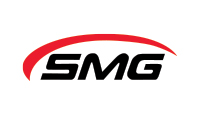We manage energy project development, environmental permitting, remediation and compliance, insustrial hygiene, health & safety, auditing, environmental management, government relations. We solve your problems in all of these areas. We move quickly and dig deeply to reach your goals. We work wherever you are.
How can SMG help you?
SMG POV
EPA Considers New Regulations for Lead-Based Paint Hazards at Public and Commercial Buildings
WRITTEN BY
William Shane, P.E.TAGGED
The EPA is the process of determining whether lead‐based paint hazards exist for activities in public and commercial buildings, as required under section 402(c)(3) of the Toxic Substances Control Act. If the EPA determines that renovation activities create lead‐based paint hazards, EPA is required to address those hazards through regulation. EPA summarized the approach it has taken during this process in a document titled “Approach for Estimating Exposures and Incremental Health Effects due to Lead During Renovation, Repair and Painting Activities in Public and Commercial Buildings”. EPA is seeking public comment on this document because it is considered an influential scientific product. An influential scientific product is one that represents new approaches and/or applications of methods that have not been previously peer reviewed and are anticipated to have significant impact on decision-making.
EPA anticipates concluding the peer review by the end of 2014. A peer review panel meeting is expected to occur in the fall of 2014 and the peer review report is expected a few months later. If EPA determines that hazards are created and publishes a proposed rule in the Federal Register, then EPA agrees to take final action no later than 18 months after the proposed rule is published.
FEATURED PROJECT
PROBLEM
A local company engaged in manufacturing imported a small amount of a chemical substance defined under TSCA. Faced with a potential EPA enforcement action with penalties assessed for noncompliance under TSCA of up to $32,500 per day per violation, the company called SMG for help.
SMG'S APPROACH
SMG analyzed the company’s current TSCA procedures and assisted the company in developing a proactive, cost-effective compliance procedure. SMG also facilitated a training program to educate employees about TSCA.
MG worked with the company to develop mechanisms that assured adherence with the policies that were being implemented for compliance. Procedures to promptly correct any potential violations and prevent future violations were also put into place.
RESULTS
SMG was able to show that the company complied with the relevant TSCA regulations and was improving their TSCA policies and procedures to assure that future issues were less likely to occur. The company was not subjected to the proposed penalties and now has mechanisms in place to maintain TSCA compliance.
